How to Screen and Test Your Blog Writer Job Candidates

Hiring someone to write for your blog is a tricky proposition. A lot of times, companies don't properly value their blog, so you might not have a huge budget to work with. At the same time, blog writers are the public face of your company. They might not be representing you at trade shows or on social media, but they're producing all of the content that your audience sees, the content that brings people to your sales funnel from Google. It's an incredibly important, and incredibly undervalued, role in your marketing and sales process.
Thus, it's crucial to find writers for your blog that aren't, to put it bluntly, terrible. And let me tell you, there are plenty of terrible writers out there. A lot of people see writing as an "easy" career. They know how to speak English, so that makes them feel qualified. They might have gotten some As on their academic papers, or maybe they majored in English in college, or something else; they feel like they're great at what they do.
With online writing, there's very little peer review, comparison, or pressure. Bad writers might never know that they're bad. They may have friends and family that encourage them, telling them that they're great. And maybe, among those circles, they are! There's nothing wrong with encouragement from friends and family. The problem is, without pushback, these people have no way of improving.
What this means is that, when you post a job for a blog writer, you're going to be positively flooded with applicants. There will be people all across the country – and hell, around the world – applying for your job. Writing is remote, after all; there's no reason for them to need to commute to an office in a city that they can't afford to live in on a blog writer's salary.
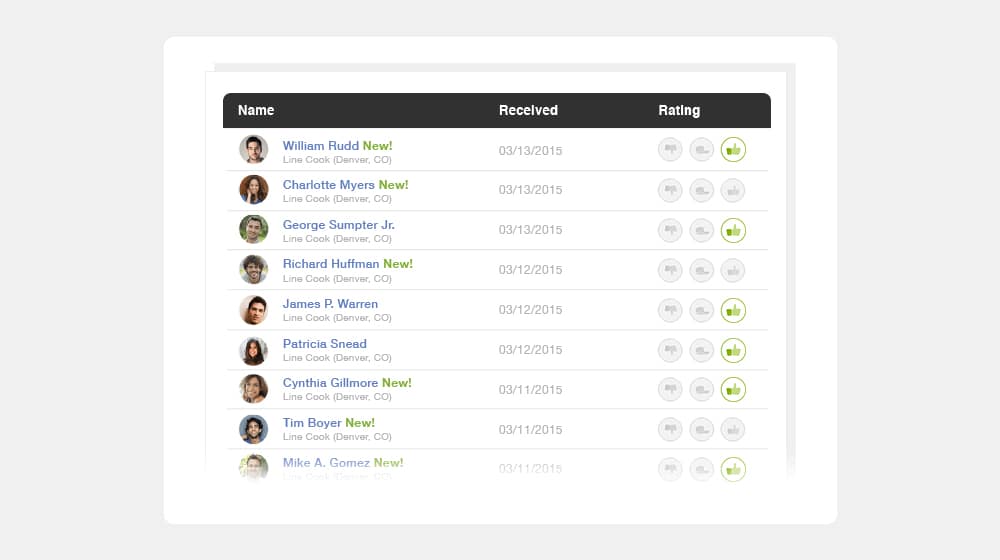
This means you might get high-power, high-talent applicants like Kristi Hines, while also getting applications from the Philippines from people who have a great command over the English language, for someone with English as a second language.
Not that there's anything wrong with a blog writer from the Philippines with excellent command of the language, either. And that's really the point. You're going to get a huge array of writers, from all walks of life, in all locations, and of all skill levels.
What you need is some way to identify the good writers from the mediocre writers. You need some way to pull out the top-tier writers, the ones that can truly take your website to the next level.
 30 Second Summary
30 Second Summary
You'll receive tons of applications when looking for a blog writer, making it hard to pick the right one. You have to focus on finding writers who understand web writing style, can research well and can spot good sources from bad ones. You should also decide if you want just a writer or a blog manager who handles topics and SEO too. When testing writers, give them paid test assignments and check their research skills. Keep backup candidates in case your first choice doesn't work out.
Step 1: Identify the Qualities of a Perfect Writer
What do you want out of your writers? There are a few key qualities I would consider essential, and a few others that are nice to have but aren't essential in a new hire.
Critical: A good grasp of not just the English language, but of web writing. Web writing is very different from fiction writing, which itself is very different from academic writing. Blogs are generally shorter, punchier, more direct, and more conversational than other styles.
There are a ton of different voices, styles, and perspectives available for blog writing, but they all share those attributes.
Generally what you want to do is find writers who are capable of writing in some kind of online style, without needing to be trained. Other elements, like familiarity with your topic, can be learned. The style of web writing itself should be learned before you hire them.
Critical: The ability to research a new topic they haven't seen before. Research is more important to modern web writing than the writing itself. There are robots slowly being trained to write blog posts. Those robots need to be fed with the right information to produce something, though. The ability to research, to think critically and put information together in interesting and innovative ways, that's still within the sole purview of human writers.

I'm not saying that you should get someone with an AI to write your blog for you, of course. You can certainly try, and let me know if you get something working, but it's still best to hire a writer with creative ability.
Critical: The ability to tell the difference between a good source and a bad source. Related to the ability to research is the ability to identify a good source from a bad source.
Sometimes this is obvious. Anyone citing Infowars for their information is going to be producing insane, rambling nonsense, not good blog posts. What about for more stable niches? You're not going to find an Infowars-level conspiracy theory blog in the marketing space. The biggest risk is someone citing a website that's actually spam, part of a PBN, or is stealing content.
Part of this comes down to experience, of course. I know all of the big names in marketing and blogging, and I know a lot of mid-level names as well. I can tell when I find a site that doesn't sit right, or that isn't a viable first-party source.
At the same time, I'd have a little initial difficulty identifying the good sources in, say, a fashion niche. I don't know all the big names. I'd learn eventually, but when you're hiring a writer, you want to hire someone who knows already.
Nice to have: The ability to write compelling headlines. This kind of depends on whether you're hiring a writer or a blog manager. Hiring a blog manager is an almost entirely different role. Some writers will be willing to do it, but many just want to do the writing.
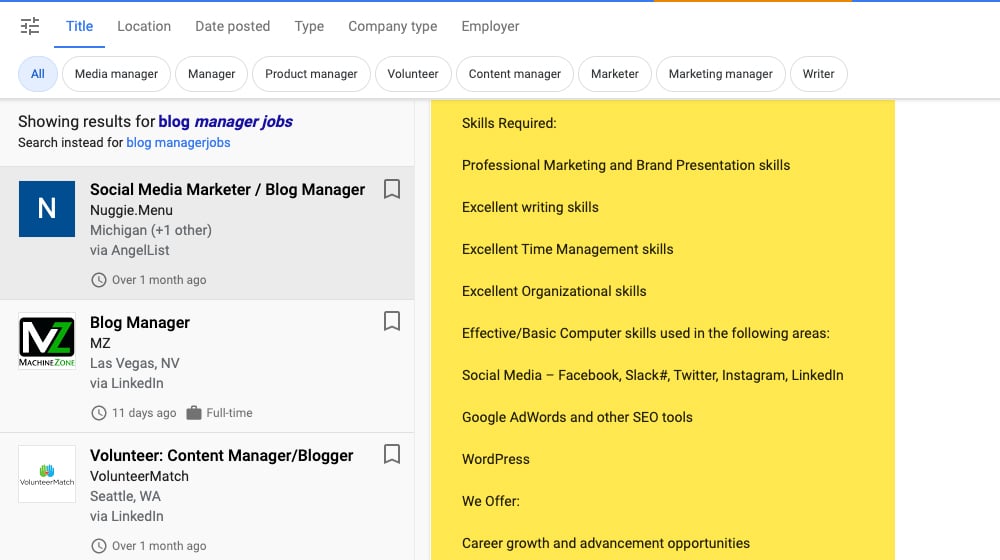
A blog manager will be able to write blog posts, but they also handle writing headlines, writing SEO meta information, doing keyword and topic research, topic ideation, and all the rest.
A writer will take assignments and write them, but will leave coming up with the assignments to you.
Personally, I like working with writers rather than blog managers. I have access to my own tools, I have spreadsheets full of topic ideas, and I've got the experience to come up with topics and avoid too much crossover with what I've already had produced.
Many writers also prefer this kind of relationship. Writing is, as mentioned above, not usually a very lucrative role. Given that a lot of keyword and topic research tools can be pretty expensive, they don't want to have to deal with them.
Still, you need to find a writer that fits with your process. Figure out what level of responsibility you want to give them, and find someone willing to take on that level of responsibility.
Nice to have: Familiarity with your business and your industry. I already mentioned this one a bit in passing. If you have two writers who have very strong backgrounds and are very good at web writing, one way to choose between them is to pick the one that's more familiar with your industry.

Now, a talented writer will be able to research your industry and learn the salient points quickly. 99% of the time, it's fine to hire the best writer, and give them a month or two to get used to the ins and outs of your industry over time. Training them, in other words.
We create blog content that converts - not just for ourselves, but for our clients, too.
We pick blog topics like hedge funds pick stocks. Then, we create articles that are 10x better to earn the top spot.
Content marketing has two ingredients - content and marketing. We've earned our black belts in both.
There are only a few reasons why I might recommend making sure you hire someone with experience in your industry, and that's when it's a heavily regulated industry. Writing in a niche like finance, medicine and health, or something like marijuana, for example. You don't want a general writer making assumptions and giving advice for financial products when they have no idea what they're really talking about.
Essentially, any time where someone following the advice on your blog stands to lose their livelihood or their lives is a time where you should hire a specialized writer instead of a generalist.
Nice to have: The ability to write in different styles as necessary. I've taken advantage of this before. If you have a writer who can write in several different styles, you can mimic having several different writers. Assign certain styles and writing quirks to certain fake personas, and develop a multi-author blog out of a single writer.
Is this really effective? Is it more beneficial or better in some way than just using your own name and having a variety of quirks? Not really. It can be useful if you're playing a long con and want to get multiple personas as writers in a big publication, but even that has questionable value. Still, if your writer has that kind of talent, they're probably better than average.
Step 2: Filter Your Applications
Once you know what you're looking for, you can start to screen your applications. Any job posting for a writer should ask for writing samples up front, but you should also be aware that the writing samples you get are not going to be representative of what the writer produces. It's an example of the best those writers produce, because they want to impress you. Keep in mind that not all of the content they write is going to be that caliber.
So how can you filter out the applications you get? Unfortunately, a lot of it is just going to be legwork. Read the applications, browse their samples, and eliminate anyone that doesn't measure up. Here are some filters I generally apply.
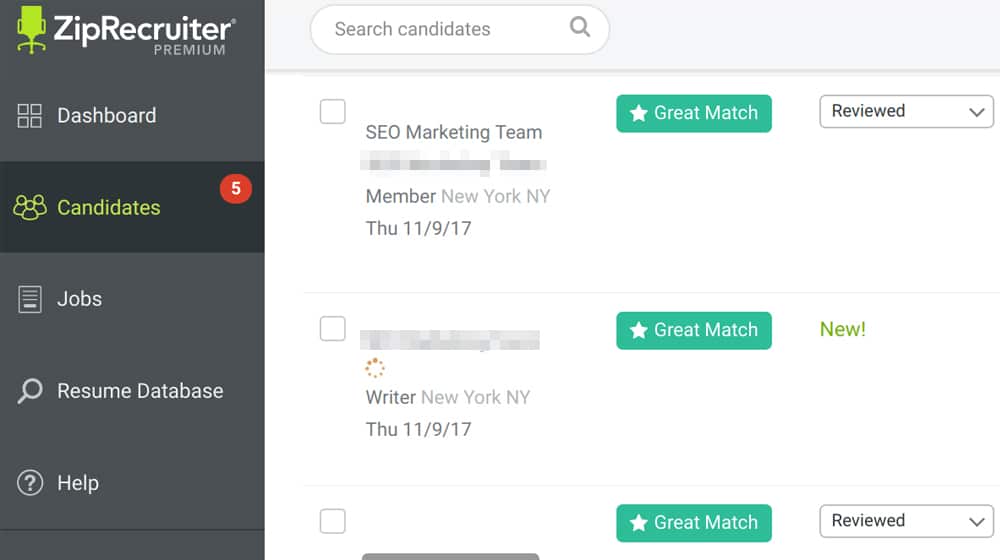
Remove anyone who submitted academic writing as a sample. Academic writing is a very different style of writing, and it doesn't showcase any of the skills you want your writers to have. Someone applying for a blog posting job should showcase their ability to write blog posts. This can also be a minor indication that they perhaps don't read assignments fully, or they don't pay full attention to longer guidelines.
Remove anyone who didn't submit any samples. Obviously, if your writer isn't submitting any writing, they aren't showcasing skills you can use to judge them.
Remove anyone whose writing is sub-par. Judge the writing on its own merits, and as mentioned, remember that it's going to be among the best content this writer can produce. If it's not something you would publish on your blog, it's not a writer you should hire.
Other filters may depend on your company and your niche. I mentioned people having familiarity with your niche for some industries; look for writers with certifications or experience working in that field, even if they didn't work as writers. I'd hire a financial analyst who can do some decent writing over a writer with no financial experience for a finance writer position, probably.
Another potential thing to note is the ongoing instability in California. California is implementing legislation that limits how much a freelance/gig writer can submit to any one client in a year. If you're hiring a writer as an employee, don't worry about it, but if you're looking to pick them up as a contractor, you may have to consider location as an important factor.
Step 3: Issue Tests to Possible Candidates
Once you have a candidate list, you want to issue them tests. A standard interview, over the phone or Skype or Discord or whatever, isn't likely going to give you a good picture. Unfortunately, a lot of writers don't actually do well communicating in voice or in person; they're writers for a reason. Besides, someone who aces an interview might still not be able to put their skills to the test.
There are a lot of different potential tests to give writers. I'm going to list a bunch of them, but I don't recommend giving all of them; pick a few that are representative of your concerns and of the skills you want the writer to have.
Give them an assignment. This is the simplest and easiest way to determine if the writer is going to perform; have them perform. Simply give them an assignment identical to the kind of content you would be having them write for your site, and judge the results they produce.
I highly recommend you pay for these kinds of projects. The writer will be more appreciative and will do better work if they know you're not trying to scam them. It's an unfortunate fact of life that a lot of companies don't value writers and are willing to scam them by the hundreds. They ask for submissions and then use those submissions without paying for them. It sucks, and it makes hiring a writer that much harder. Paying for a submission, even if it's not the full amount you would pay if you hired them, can help get around that issue.
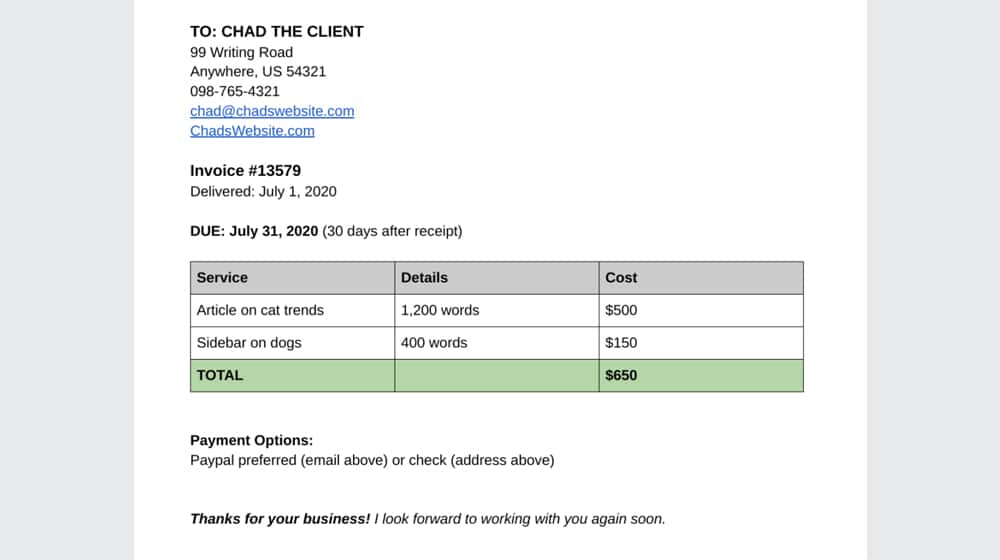
Put together a research hunt. Think of it like a scavenger hunt. You have a topic and you want them to come up with certain pieces of information related to the topic. Develop a 5-10 question prompt and set the writer to work looking for the information. Ask them both for the information and for their source, and judge what they come up with.
Look for accuracy in information, and look for reputability in the source. If they're citing something from ten years ago, it might no longer be valid. If they're citing incorrect information, you know they might have an issue producing up to date content for you.
Ask them to edit. Your writers should be able to proofread their work and spot errors they make, so you may consider putting together a test post with a few intentional errors for them to fix. You don't need to require that they get them all, but you want at least most of them to be caught and pointed out or corrected. If you have specific kinds of errors you want to look for, you can include them.
Set up a mock interview with someone in your company. Depending on the role you want your writer to fill, you can have them interview someone in your company about a specific topic, as a basis for research. GrowAndConvert mentions that they like to hire teams of three writers; one that does expert writing, one that does interview-based research, and one that does more off-the-wall interest pieces. If that sounds good to you, getting someone with the skills to interview someone as research can be a great find.
Ask them to pitch a few ideas. This is more of a test for people you want to be blog managers, not just writers, but it can be a good idea to see what level of thinking your writers are operating on. For example, if a writer pitches ideas like "a basic guide to SEO" for your marketing blog, you know they aren't giving it a ton of thought. Something more detailed, like "Ten WordPress plugins to help manage a referral program" would be more interesting.
Step 4: Hire and Train
Once you've chosen a good writer, hire them and see how they do.
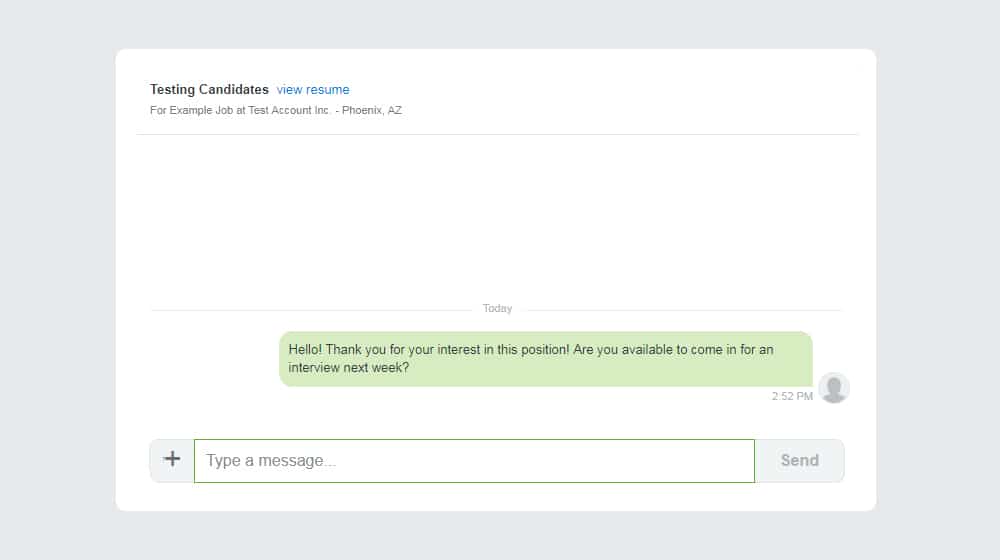
The trick, though, is to not discard the information for other applicants. If your chosen writer doesn't work out, or if you decide you want to have more than one writer on staff, you can hire another later. As long as you don't get rid of their information, they'll be an available resource for as long as you need them to be.
With any luck, your first pick will work out, but we all know that isn't always the case. Regardless, the more qualified leads you keep around, the better the chance you'll have to find someone great.



 30 Second Summary
30 Second Summary


September 02, 2020
It is really difficult to find a good writer. I hired a freelancer about a year ago but he didn't work out and I haven't hired since. I think I just need to be pickier with who I hire, I wasn't aware these writer tests are common knowledge in this industry so I feel a little silly. But, you live and you learn!
September 03, 2020
Hey Ellen! Most definitely, we've had our fair share of writers over the years. The only thing worse is when you find a great writer and they end up leaving to take a job somewhere else. I hope you have better success hiring this time! Good luck.
October 01, 2020
This is a great guide. I wanted to hire someone that knew the ins and outs of my industry but it's looking like I'll have to train someone. Turns out its hard enough just to find a good writer as it is.
October 05, 2020
Don't I know it... that's basically what we do here. If they are a great writer, the rest comes easy. That's certainly a challenge in and of itself.
October 07, 2020
Hey James! I'm just wondering how much do you pay if you ask to submit an article for the test? Should it be per words or should can pay for the article as a whole? If so, how much is the decent amount to pay those articles?
October 12, 2020
Hi Doug! Good question.
I think paying per word is the industry standard, but it depends on the type of writer. Non-technical and entry-level writers may charge around $0.06 cents per word, but technical writers can often charge anywhere from $0.15 - $0.20 cents per word or higher.
I would have the test reflect the content length and quality you're looking for. If you're after long-form content (which you should be!), then that might look something like 2,500 words for a blog post. The cost per word depends on how technical your content is and how much research needs to be performed.
October 09, 2024
I've always wondered if paying more for technical writers brings better results. Does it balance out in quality?
October 11, 2024
Hey Mario!
Spending more money on technical writers can often lead to better quality work. Higher-paid writers often have special skills that improve the reliability and engagement of your content. Plus experienced writers might need less editing which can save you money in the long run. What topic are you thinking about exploring?
Just let me know if you want any more advice! 😊
March 11, 2021
Hi James. Do you have any idea on how much should I offer for writers that can do blog management? say writing 2 articles a week with blog management?
March 12, 2021
Hey Andrew!
Well, writers and blog managers are two different things.
For writers, I would research the rates for a higher-end writer and find the average cost per word. Then, once you've decided how many words you want your articles to be on average, put together an offer that is based on your research.
Of course, blog management is a lot more complicated than article writing. Are they creating custom images for you? Are they doing the keyword research and picking the perfect blog topics, or are they thinking of random topics without any due diligence or competitive research? Are they uploading them for you? Are they managing the plugins, comments, and editing old articles to keep them up-to-date?
Many people over-simplify content marketing, but it is two parts blended into one: writing and marketing.
With our team, we have four separate departments - graphic designers, writers, marketers, and CMS handlers.
To give you an idea, here's our topic selection process:
https://www.contentpowered.com/process/topic-selection/
Here's our writing process:
https://www.contentpowered.com/process/writing/
Here's part of our optimization and CMS process:
https://www.contentpowered.com/process/optimization/
If you hire a writer and expect them to do all of these things for you, you'll probably want to price that out differently. It's difficult to find someone who is talented at all of these, though.
I hope this helps!